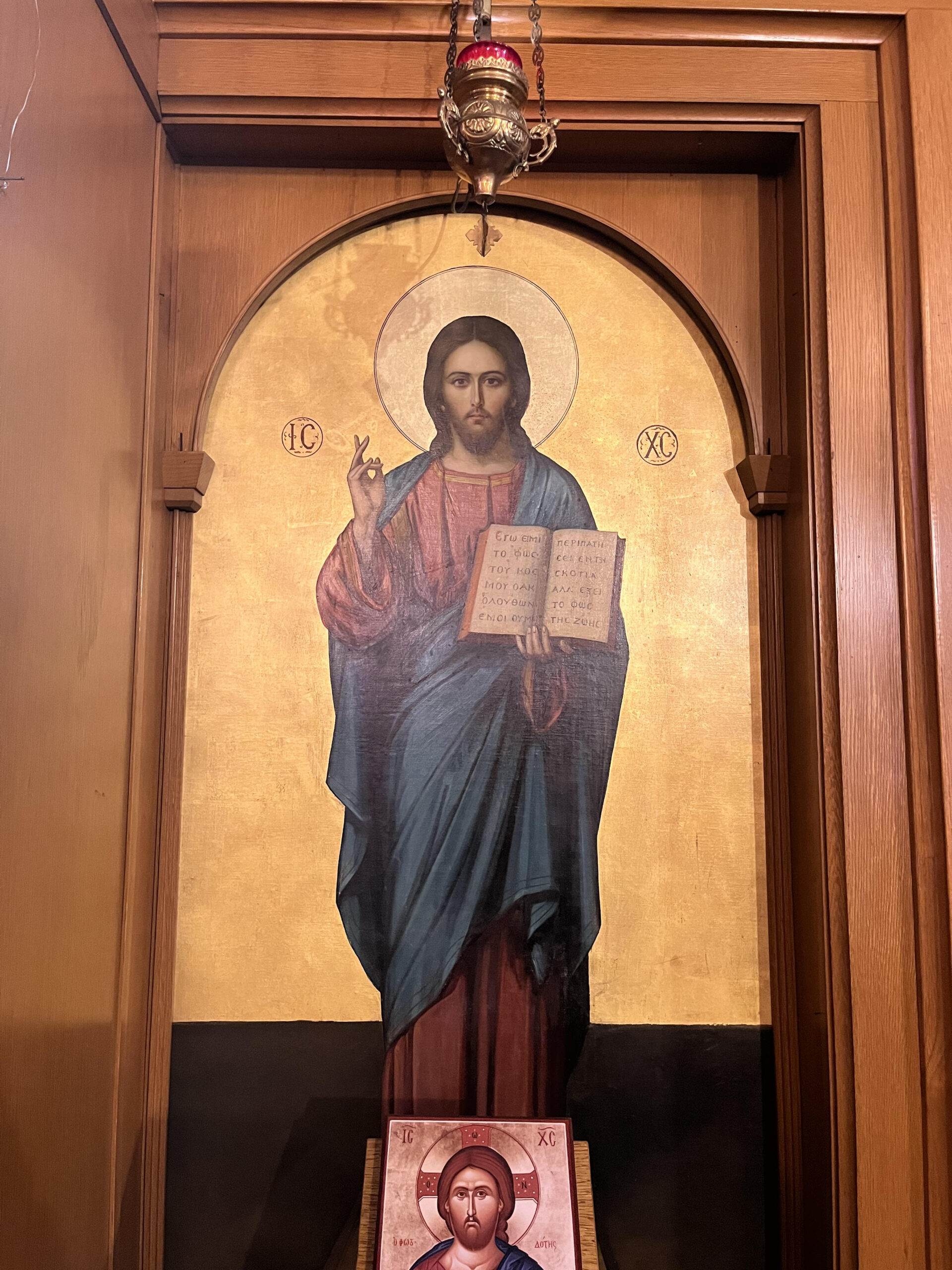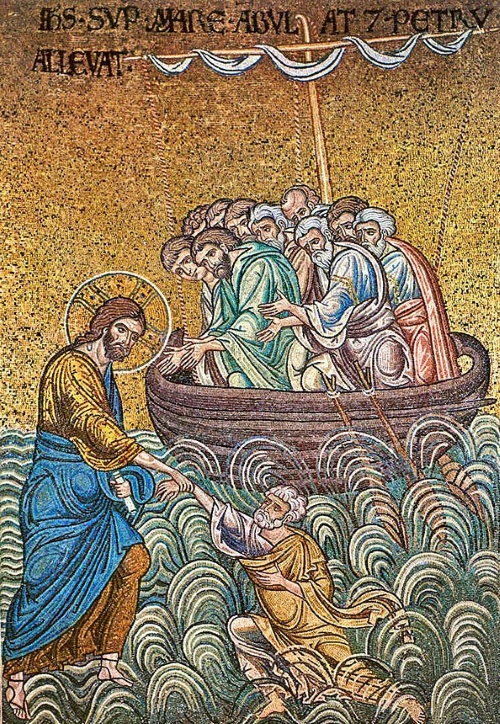Then He said to them, “Render therefore to Caesar the things that are Caesar’s, and to God the things that are God’s.”
Matthew 22:21
I do not often use the word “politics” on the Prayer Team. I don’t endorse political candidates or tell people how to vote. That is a personal choice, a personal freedom we all enjoy as Americans, to vote for whom we wish. Because there is (or should be) a spiritual undertone to every aspect of our lives, this spills over into political issues as well. This reflection does not endorse any candidate or party, but hopefully gives us pause to think about certain things that are found in the Bible that will hopefully help guide us as Christians as we make choices in who and what we support.
Jesus said “Render therefore to Caesar (the government), the things that are Caesar’s, and to God the things that are God’s.” (Matthew 22:21) When the government says that we should pay taxes, we should. When the civil law tells us to drive a certain speed limit on the road, we should do that. When a police officer asks us for our ID, we should present it. Without law and order, we would have chaos. The government, in my humble opinion, exists to preserve law and order, to keep us safe from harm, to provide safe schools, and functioning roads and bridges. When these things break, the government makes sure that they are fixed. It is the government that should lead the effort to rebuild after a disaster strikes.
Again, in my humble opinion, in the last several decades, we’ve made the government a moral authority. We have, in a way of speaking, “rendered to Caesar the things that are God’s.” Saint Paul wrote in I Corinthians 6:19-20, Do you not know that your body is a temple of the Holy Spirit within you, which you have from God? You are not your own; you were bought with a price. So glorify God in your body.” How does that match up with “my body, my choice”? That is a question for each of us to answer. The truth is that we have freedom and free will from God to do whatever we want with our bodies and our lives. However, those choices have consequences. While we may choose to not glorify God with our bodies, or our behaviors, eventually we will stand before God and have to explain those choices.
In 2 Timothy 2:6, St. Paul writes “It is the hard-working farmer who ought to have the first share of the crops.” This would seem to indicate that there should be a reward for working, that working should be incentivized. In the Parable of the Talents, Matthew 25: 14-30, that I write about so often, the master entrusted each servant with a different number of talents. He didn’t expect an equitable outcome. He expected an equitable effort.
The Bible has never endorsed violence, even in the name of righteous protest. To the contrary, Jesus says in Luke 6:29, “To him who strikes you on the cheek, offer the other also; and from him who takes away your coat do not withhold even your shirt.”
The Bible was never meant to be a resource to argue with non-believers. It is a guidebook for those who believe. For the first three-and-a-half centuries of Christianity, there was no Bible. And up until recent centuries, until the invention of the printing press, people didn’t own Bibles. So, the Bible isn’t the tool which we are supposed to use to convince non-believers. It is a book used by believers to augment what we believe. It deepens what we believe, it teaches us how we are to live. It reminds us of who we are and what Christ did for us. The verses quoted in this reflection are not meant to be a political statement—these are verses from sacred Scripture that should speak to us in a personal way as Christians, regardless of what political ideology we identify with. They are verses to guide and encourage us. I would not stand up and argue the concept of “equity” in this politically charged world. The Bible speaks to me that the equitable outcome that God hopes for is that “all men should be saved and come to the knowledge of the truth,” (I Timothy 2:4) and this is accomplished with equitable effort, though the path for each person will be different, because the blessings and opportunities given to each person will be different. There is no equality in the eyes of God. Each of us is of infinite value in the eyes of God, and “infinity equals infinity” is not possible.
The Bible is very clear in establishing a social paradigm, one that is God-centered. We are to treat all people with love and respect, because each person is created in the image and likeness of God. We are to help our neighbor, as in the parable of the Good Samaritan, even if that neighbor is our enemy. Jesus says in Luke 3:11, “He who has two coats, let him share with him who has none; and he who has food, let him do likewise.” Those who have more are supposed to share with those who have less, not because it is a government mandate, but because they come to that realization and choice on their own. We are supposed to give cheerfully, and not under compulsion. (2 Corinthians 9:7) And in Matthew 25: 31-46, in the account of the Last Judgment, Jesus is very clear in telling us that our entrance into the Kingdom of heaven will be based on ministering to our fellow man—feeding the hungry, clothing the naked, welcome the stranger, visiting the sick.
One of the most important gifts we have been given by the Lord is freedom—we are free to believe and we are free to not believe. We are free to be generous and we are free to be selfish. We are free to express our thoughts. Freedom comes with responsibility and how we use our freedom has consequences—both in this life and for eternal life.
In our services, we pray for our country and our President, whoever that person might be and whatever party they might be from. Because they have the ability to influence the whole world and that is a responsibility not to be taken lightly. We have an obligation to follow the law—both the law of man and the law of God. We also pray for peace in the world, and to know that peace in the world begins with peace in our own lives, in our own souls. I have opinions on politics, just like everyone else. I get frustrated by some of the things we see in politics, just like everyone else. However, what I try to remember, is that first and foremost, I serve the Lord, and it is His opinion that ultimately will be the only one that matters. Did I honor Him with my body, my language, my choices, my service and my life? Did I give because I wanted to, or because I was forced? Was my life lived for Him? Or was it only for me? I look only to the Lord as my moral authority, and I read the Bible for encouragement and direction on what to believe and how to behave. I do not use it to argue with others, but as a guide to my own salvation. It helps me to render to Caesar what belongs to him and to render to God what belongs to Him.
Lord, there is such temptation to get involved in political rancor, to argue, to become upset, to get distracted and to feel anxious. Help me find comfort in Your words and promises. Help me to stay focused on You. Help me to be an example to others not with my words but with my actions. Give me a heart that desires to serve. Help me to stay humble. Help me to trust in You. Help me to see the good in all people. Help me to see those who need to be served in some way today. Amen.
Remember the words of Psalm 56:10-11 each time you worry about the political scene in our country: In God, whose word I praise, in the Lord, whose word I praise, in God I trust without a fear. What can man do to me?


